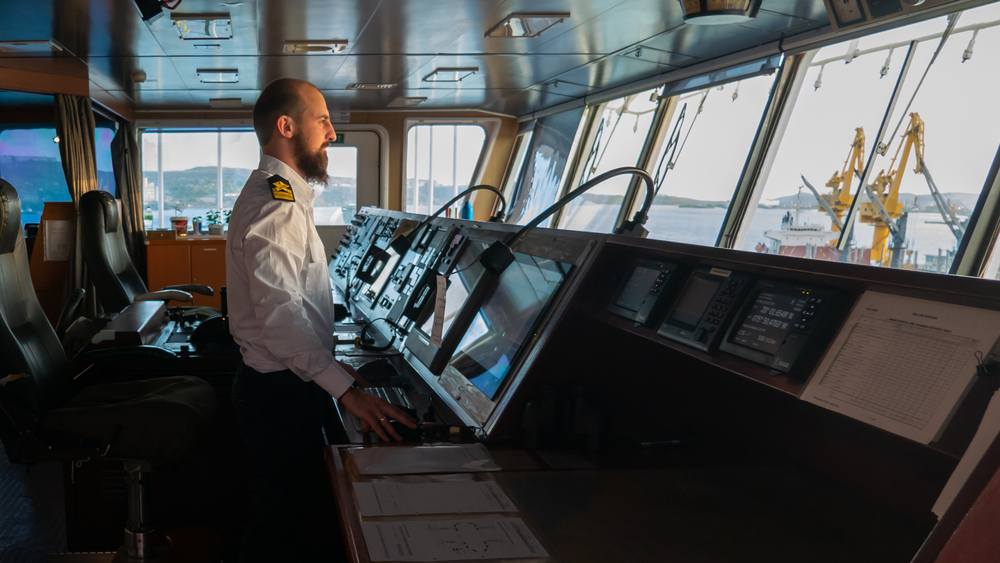
With ocean freight acting as the lifeblood of international trade, its smooth functioning is essential for the global economy. But in recent years, a concerning trend has emerged — the shortage of ship officers. This scarcity of skilled professionals entrusted with the responsibility of overseeing maritime operations has started to impact the industry in profound ways. Worse still, it’s expected to continue into the future, signaling choppy waters for transoceanic shippers and the industries reliant on them.
What’s Causing the Ship Officer Shortage?
In the wake of COVID-19, the surge in demand for shipping across ocean lanes created a strain on the existing pool of officers. As ocean freight volumes continue to increase, the need for skilled professionals to navigate and manage maritime operations has surpassed the rate at which new officers are entering the field.
A greener field of professionals also has an impact on the qualifications and skills of available maritime officers. While many seasoned professionals are reaching retirement age, the influx of fresh talent into the industry is insufficient to offset these departures. This loss of experienced personnel further strains the already stretched workforce, exacerbating the ship officer shortage and its adverse effects on the global shipping industry.
Ultimately, this shortage boils down to an imbalance of supply and demand. Rising ocean freight volumes and a shrinking pool of capable, qualified officers are stretching the available talent pool to its limits.
Effects of the Officer Shortage
The 17-year shortage of ship officers is reverberating across the industry, resulting in a host of consequential challenges, including:
- Manning costs: One of the most immediate impacts is the escalation of manning costs. With a limited supply of qualified officers, maritime companies are compelled to offer more competitive salaries and benefits to attract and retain skilled professionals. As a consequence, operating expenses are soaring.
- Operational gaps: The scarcity of ship officers is also affecting operational flexibility. Companies may struggle to find suitable replacements for crew members who fall ill or need to take leave, leading to potential disruptions in maritime operations. This lack of flexibility can further exacerbate shipping delays and create logistical bottlenecks.
- Freight costs: As shippers grapple with limited personnel, they may be forced to reduce the number of vessels in operation, resulting in a decreased supply of shipping services. This supply-demand imbalance drives up freight costs, raising expenses across virtually all maritime lanes.
Solving the Ship Officer Shortage
Solving the multifaceted ship officer shortage requires an equally multifaceted approach. Maritime operators must enhance recruitment and training to bolster the pool of skilled officers. Diversification will be key to staffing in the future. Women and minorities are currently underrepresented in the industry. Embracing inclusivity and fostering a welcoming environment will expand the talent pool and bring fresh perspectives to the field.
Moreover, making the maritime sector more appealing to young people is essential for its long-term sustainability. Offering competitive benefits, opportunities for career growth, and work-life balance will attract young professionals seeking long-term careers. These opportunities can not only can address the ship officer shortage in the near term but also resolve it long-term if done right.
An Immediate, Persistent Concern
The ship officer shortage has emerged as a significant concern for the global shipping industry, impacting its operational efficiency and economic viability. The combination of increased shipping demands, the retirement of experienced officers, and a lack of new recruits has created a pressing need for effective solutions.
For companies reliant on ocean freight, the time has come to begin planning for protracted timelines and contingent actions. Until the workforce balances out, ocean freight lanes will continue to face rough waters.
Struggling with ocean freight? nVision Global helps companies pivot and act proactively as the industry continues to face crew shortages. Contact us and learn more about how we can help you.